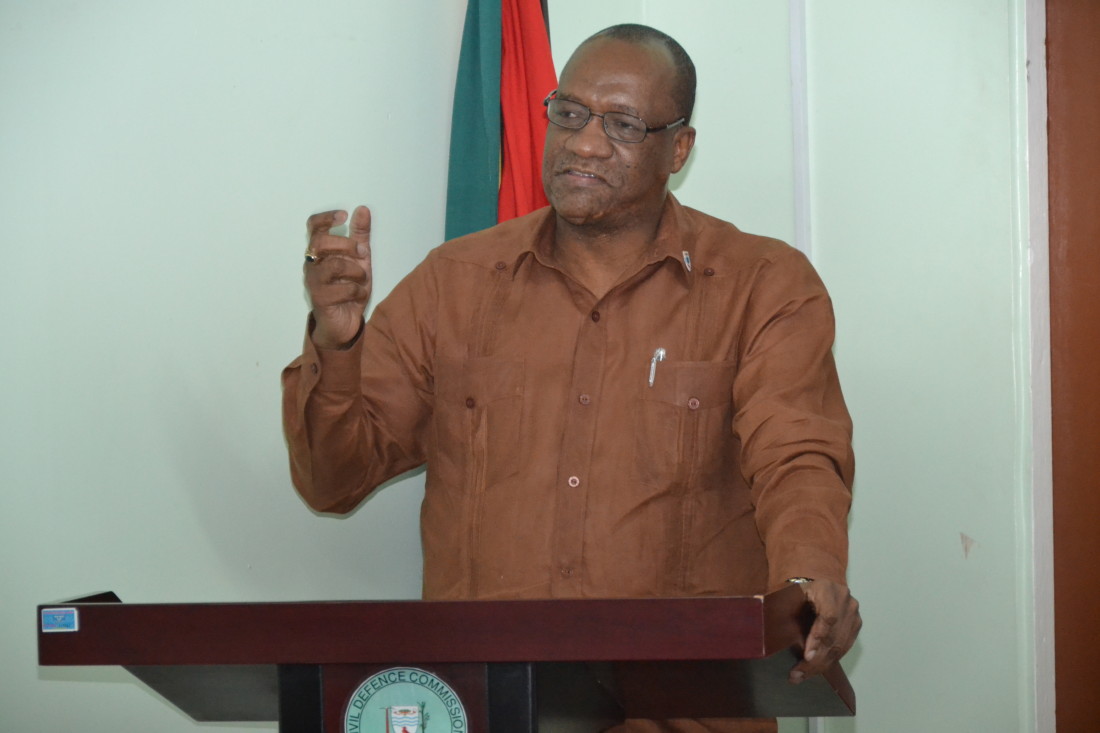Government says it welcomes Venezuelans visiting Guyana legally to shop given the current economic state of the country but that they have to ensure that their entrance is legal.
“So anybody coming to Guyana, for food and things like that, we have not made any major statement on that matter, in fact we
support people who come to Guyana on those grounds,” Minister of State Joseph Harmon said yesterday at a post-Cabinet press briefing.

“We have a humanitarian approach to this matter. We believe that we have a responsibility in this part of the hemisphere, to demonstrate that we are a warm, welcoming and hospitable country… Once faced with those circumstances we would not come down with a harsh hand on them. All we require is they respect our laws and come through the proper port of entry to report their presence in Guyana,” Harmon went on to explain.
He was questioned on if government will be relaxing the deportation of Venezuelans who are here on humanitarian grounds.
“We have made it clear that, on humanitarian grounds, we will not turn back Venezuelans who come to seek help here in Guyana. We, of course, have a responsibility to ensure the integrity of our borders and that the immigration procedures, which are applied to any person who comes to Guyana, that we will apply those procedures,” Harmon asserted.
He explained that Guyana was a part of international agreements which require countries to give support to persons “who are in those circumstances” and will continue to do same.
As such, he said that persons who have been deported have been found by the law to have violated some part of our laws. “The law is the law. The government will not tell the courts how to act. The fact that the persons were actually brought to the court meant that there would have been some offence that would have been committed. Very often when people go to court they manufacture these defences on their way to court,” the minister stated.
At a parliamentary committee hearing yesterday afternoon, the opposition People’s Progressive Party/Civic (PPP/C) questioned government on how the issue is being dealt with diplomatically. PPP/C MP Nigel Dharamlall said that he had read that Venezuelans were being referred to as economic refugees.
But Minister of Citizenship, Winston Felix said that the issue with the Venezuelans is that the nine were found in a hotel at Parika having not reported to an immigration officer.
“I don’t know who classified them as economic refugees and I cannot deal with that, but in accordance with Guyana’s law, that was an illegal act and they were dealt with according to the law”, he said.
Further, he added “We can have emotive feelings. We are all human being. Some of our Guyanese had similar experiences and we can all empathize with the Venezuelans but if you are found in breach of the law then the law must take its course”.
Minister of Foreign Affairs, Carl Greenidge also explained government’s position to Dharamlall. “Whether or not you are UN classified refugee or you would like to be treated as a refugee of any type in a country, you still have to meet the requirements of the law…you cannot arrive in Guyana, fail to reach immigration requirements, go and set up residence some place and expect to be treated as a refugee.
“If you are a refugee you land at the borders…the port of entry you declare yourself to be a refugee. If you can prove it, by way of a UN document, then we are obliged to give consideration to the application and take appropriate action”.
He stressed that in the absence of a UN document, the person has to ask to be considered a refugee. Said Greenidge “You can’t arrive and expect citizenship or immigration or the police automatically to treat you as a refugee…Even if they were (refugees) there is a process as an intended refugee you have to declare yourself to immigration authorities.”
“One cannot land in the US, bypass immigration officials, turn up in Washington and claim that you have a right…you had a bad time in Haiti or wherever…There is a process”. He said that there is nothing wrong with sympathy but “you also have to know the laws. You are not automatically entitled to things”, he added.





